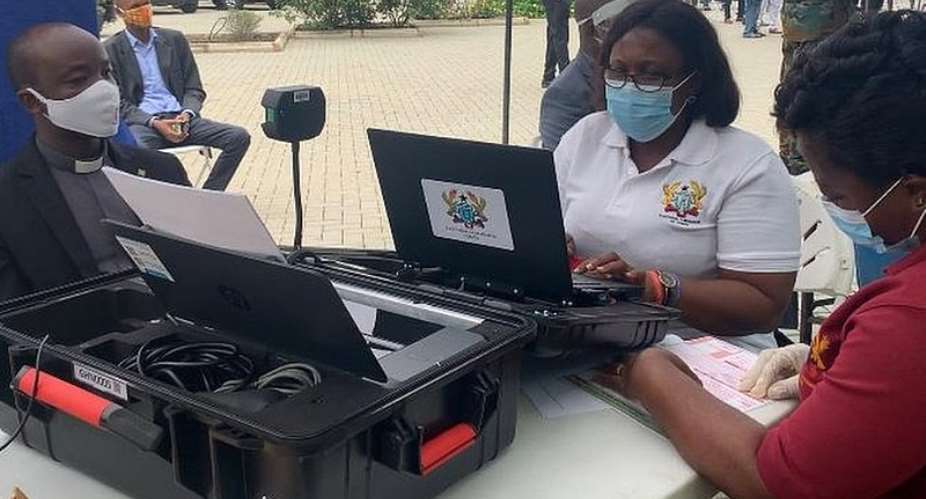In Ghana, electoral process is not confined to a single day; instead, it encompasses a series of significant steps and procedures that begin as soon as an election is over. The vital role played by the Electoral Commissioner (EC) throughout these stages is instrumental in guaranteeing the integrity of a free and fair election.
The ongoing voter registration undertaken by the Electoral Commission (EC) of Ghana at its 268 district offices is a crucial process however, it would displace new voters on election day if reasonableness is not exercised. This is because, the registration exercise is not decentralized enough to inform new voters about their respective polling stations where they can exercise their franchise on election day.
According to data from the Electoral Commission, Ghana has 33,367 polling stations. Therefore, carrying out the voter registration process at the polling station results in alerting the electorate of where to cast their ballots on election day. On the other hand, because the registration process is focused on the 268 district offices of the EC, new voters would be dispersed from the 275 constituencies. Additionally, the old credo "vote where you registered" would no longer apply, and new voters would be required to locate the proper polling stations that correspond with their voter ID/serial number in order to cast their ballots. It should be mentioned that in the past, when voter registration took place at the polling station, voters occasionally had trouble locating the designated voting station because there were more than one voting station at a given polling station.
The polling stations serve as the principal places to cast a ballot and are strategically situated in close proximity to voting residents. This close proximity makes it easier for existing voters to guarantee the identity of new voters, up to a maximum of 10 people, in accordance with C.I. 91 (as amended by C.I. 126). Consequently, the process of voter registration is made more accessible, sparing new registrants the burden of transporting two guarantors to the district office. Moreover, this approach ensures efficient resource allocation by preventing unnecessary expenditures on voter education by EC regarding future polling locations.
YAFO Institute calls on the EC to reconsider decentralizing the voter registration exercise at the various polling stations and put in necessary steps to ensure that new voters are not displaced on election day in the near future.
Source: YAFO INSTITUTE





 TUC tells informal sector employers to pay their employees the minimum wage
TUC tells informal sector employers to pay their employees the minimum wage
 Prof. Marfo urges good civilian-security relations to promote peace
Prof. Marfo urges good civilian-security relations to promote peace
 I was nearly jailed because of NPP; I’m still ‘pained’ — Hopeson Adorye
I was nearly jailed because of NPP; I’m still ‘pained’ — Hopeson Adorye
 Rising against NPP after being a minister for 15 years is a sin; God will judge ...
Rising against NPP after being a minister for 15 years is a sin; God will judge ...
 Cecilia Dapaah: Reasons behind AG’s advice to EOCO not grounded in law – Martin ...
Cecilia Dapaah: Reasons behind AG’s advice to EOCO not grounded in law – Martin ...
 NPP should have reported Kingsley Nyarko’s conduct to police – Inusah Fuseini
NPP should have reported Kingsley Nyarko’s conduct to police – Inusah Fuseini
 Akufo-Addo cuts sod for MIIF Technical Training Centre
Akufo-Addo cuts sod for MIIF Technical Training Centre
 NPP didn’t struggle to win Ejisu by-election – Samuel Ayeh-Paye
NPP didn’t struggle to win Ejisu by-election – Samuel Ayeh-Paye
 A/R: Achiase Chief arrested for acid attack on community members
A/R: Achiase Chief arrested for acid attack on community members
 Naa Ayemoede returns to school
Naa Ayemoede returns to school
